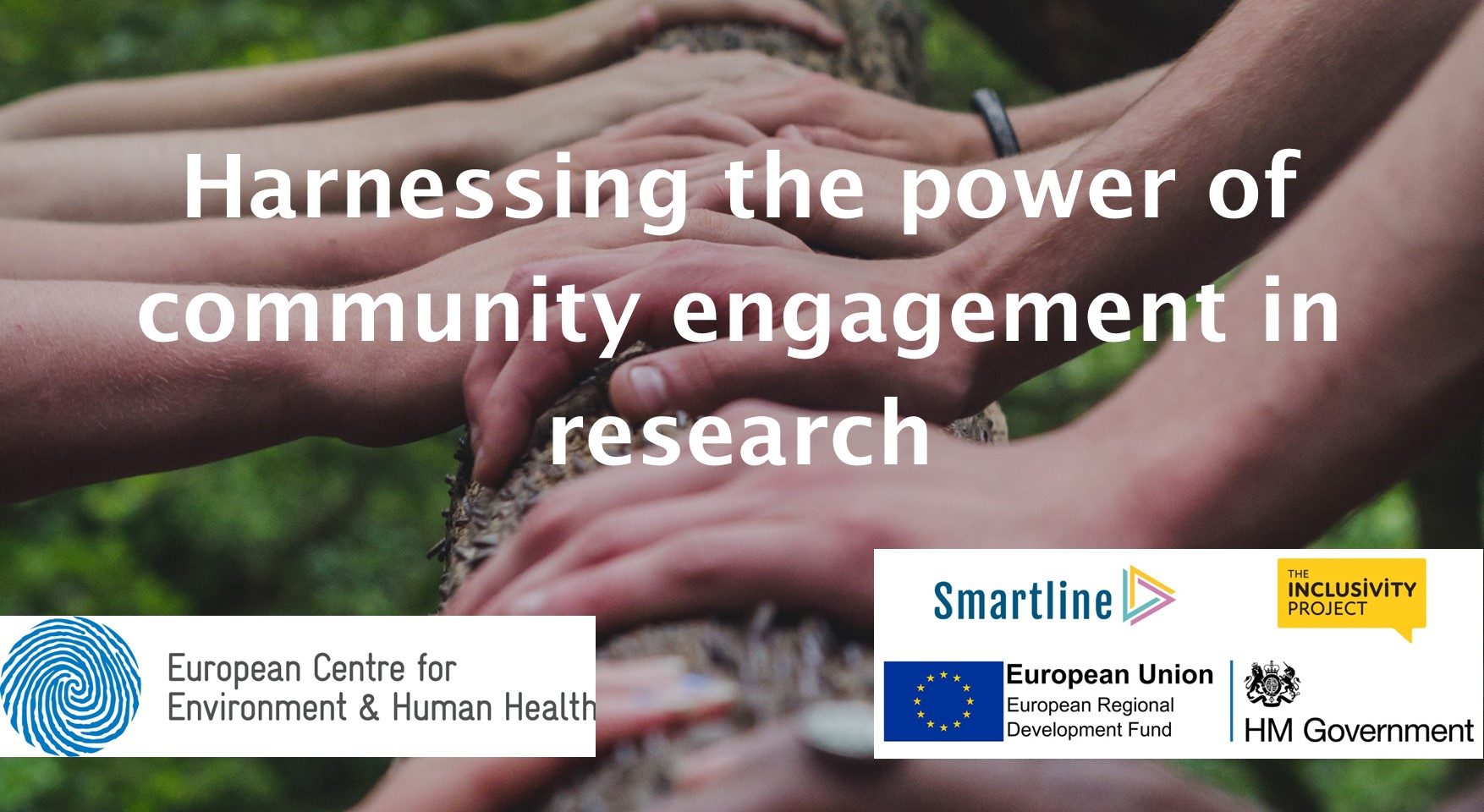Peninsula Forum for Environment and Human Health 2022: Harnessing the power of community engagement in research

For more than a decade the European Centre for Environment and Human Health (ECEHH) has worked to put the complex relationships between people and the environment at the top of local, national and international agendas.
This year’s Peninsula Forum put a spotlight on the power of community engagement when used as part of world class research enabling delegates to discover how our pioneering research and collaborative approach is identifying solutions to benefit both nature and people and influencing local, national and international policy-change.
Co-designing a local climate adaptation tool
Our first speaker, Jess Dicken, outlined how a partnership between the ECEHH and Cornwall Council, and supported by a wide range of local stakeholders, led to the development of The Local Climate Adaption Tool (LCAT), a tool to support local decision makers to plan and adapt to climate change. LCAT works by allowing users to select a local area of interest and see the predicted climate for this area over the coming decades. It combines these predictions with evidence on the health impacts of climate change from the scientific literature to support local organisations to plan their adaptation strategies, and enable the best possible health and well-being outcomes for local people. The prototype was showcased at COP26 in Glasgow and is now being developed collaboratively with stakeholders. For more information please get in touch
Working with stakeholders and users to innovate solutions
Antony Brown from Then Try This shared highlights from their innovative project funded by Smartline looking at how sensor data and visualisation software can be used to test and measure air pollution in Cornwall. Anthony explained that a meeting with Cornwall Council and community groups found that there was an interest in making sensor boxes freely available for communities to test levels of pollution so they can provide evidence for their policymakers to be able to make bold decisions.
Looking forward, Then Try This are in further discussions with Cornwall Council exploring the potential to use the sensors to monitor air pollution before and after cycle lanes are introduced and displaying air pollution rates outside schools and on busy roads to encourage people to walk/cycle or stop people idling their engines.
Citizen Science approaches to air quality
Dr Siân de Bell introduced her work on EXPO-ENGAGE, a research project looking at the impact of air quality citizen science on environment engagement with groups in Falmouth/Penryn and Bristol.
Siân took us through how they worked with participants to explore whether and how monitoring air pollution can lead to interest in environmental issues and motivation for action. The plan is to continue collaborating with participants by asking for feedback on project outputs and supporting ideas for future use e.g. in schools, at work, taking data to local council.
Graphic showcase of ECEHH’s research
During a break in proceedings a Graphic showcase of ECEHH’s research was featured with questions encouraged.
Community action against plastic pollution
Next up Emily Stevenson, PhD student and co-founder of Beach Guardian, led a discussion on how local Cornish communities are tackling the global issues of plastic pollution and mental health issues within young/vulnerable people. Emily explained how Beach Guardian use the plastic they collect to host workshops turning ghost fishing materials into art works.
Emily went on to introduce CETUS the whale, an 8 metre woven whale who has been touring the county, taking in the G7 and Royal Cornwall Show and spreading her message of grass roots conservation coming together to tackle global issues. CETUS has just made her longest journey yet for an appearance at Glastonbury festival.
Working together whilst apart
Dr Shruti Raghuraman, research fellow with The Inclusivity Project, took the discussion in a slightly different direction, presenting the collaborative process the project undertook with Age UK Cornwall & The Isles of Scilly to support their transition to hybrid working. They looked at ways of making this transition fair, inclusive and enriching. Shruti and colleagues have been using co-design methods to work on developing a hybrid work blueprint. The work is particularly relevant to small businesses and charities.
Making home sensor data meaningful
The final speaker was Dr Tim Walker presenting the work Smartline has been doing on installing home smart sensors. Tim explained how they are a great way to monitor the home environment helping to identify and understand issues such as damp, mould and poor air quality. Dr Walker has been working to understand the data collected by smart sensors and explained how people can use this data to make improvements to their home environment, co-designing a bespoke digital dashboard with our Smartline participants to help people understand sensor data more easily so that they can take informed action.